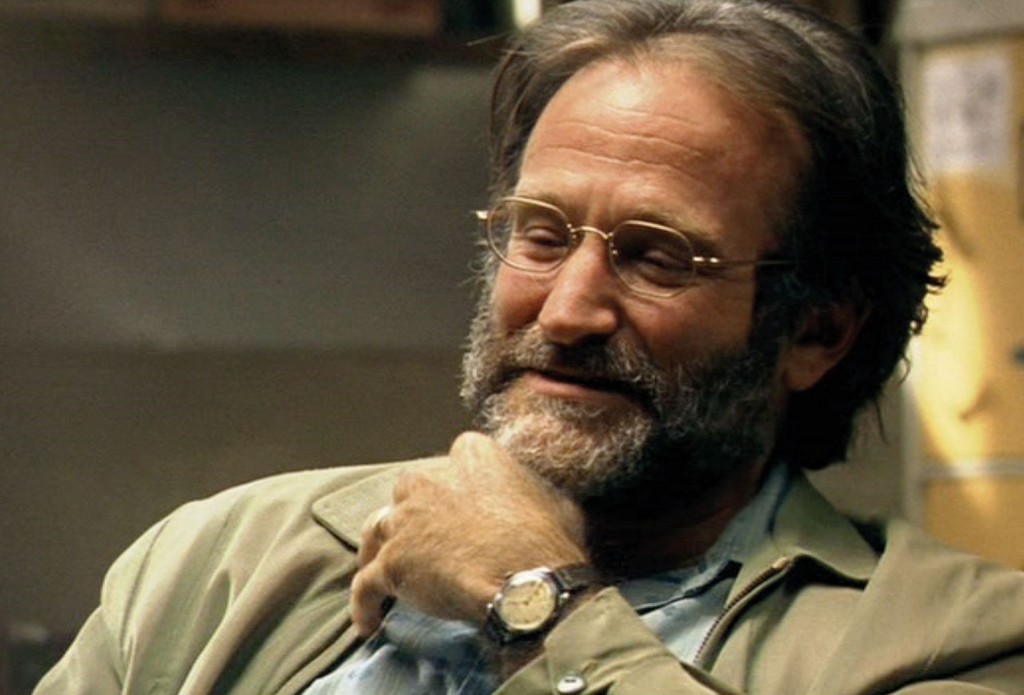When you think of a therapist you might think of the ones depicted in movies. Robin William’s rendition of the therapist Sean in Good Will Hunting is a classic.
After given the choice of either doing jail time for hitting a police officer or attending therapy, Will (Matt Damon) reluctantly begins seeing Sean for therapy. Will was abused by his foster father growing up and subconsciously blames himself for it. This self-hatred has led to failed relationships and an impenetrable wall of wit and intellect. One session as Sean reviews the file detailing Will’s abuse, Will asks if he himself understands,
“Have you had any experience with that?”
Sean is honest, “Personally? Yeah, I have. I had to provoke him so he wouldn’t go after my mother and brother. Interesting nights when he would where his rings.”
Will then asks with a tentative laugh, “So, what is it? (asking about the report) ‘Will has an attachment disorder, fear of abandonment?”
Sean nods. And then, with the softest, warmest tone,
“Hey Will?”
He moves slowly closer
“I don’t know a lot, but you see this? All this sh–?”
Almost a whisper now.
“It’s not your fault.”
Will looks down, “Yeah, I know that.”
“Look at me, son. It’s not your fault.”
“I know.”
“No, you don’t. It’s not your fault.”
Will’s visibly upset. He is incredibly vulnerable. He’s come face to face with one of his deepest fears, that it is his fault.
“Don’t f— with me, Sean! Not you!”
Sean is the one person who has faithfully waited through all his defense mechanisms, the one father-like figure he has grown to trust, and he’s now making Will confront this terrible fear. There is so much at stake here emotionally for Will. Sean knows this. He refuses to let the moment go.
“It’s not your fault.”
Will starts to sob.
Sean has broken through. Will begins to believe it. Sean wraps Will in a warm and reassuring hug. There’s been a little boy inside of Will who has needed to hear these words for years. And finally, Sean is the one to speak to them.
Wow. There’s a therapist.

I have to admit, this is one of the most inspiring scenes for me as a therapist. There’s a lot that can be discussed and debated when it comes to what a therapist/client relationship should look like, the ethics of hugging a client, and other “controversial therapist” moments in the movie. But something about this scene strikes to the core of what a therapist is. How might that be summarized, though?
To me, a therapist is a person with the intention to help and the skillset, training, and presence to do so. Let’s break that down:
A person
Therapists are people just as much as their clients. That may sound simplistic but when thinking about becoming a therapist, it is utterly crucial to realize. The work of therapy is conducted entirely through you, a person with just as vast and complex a history as any client. In the field of therapy there is an entire world of literature around the idea of self-of-the-therapist, which asks the question, how does me being me affect my work in helping others, for better or for worse?
…with the intention to help…
The predominate dynamic of therapy is that people need and are seeking help. To be a therapist is to fundamentally want the good of every person that walks through your office doors, to want to help. But how is that helping done?
…and the skillset, training, and presence to do so.
Therapists are helpers, not fixers. A client walks in with a broken life in their hands. The therapist’s role is not to put the pieces back together. The therapist’s role is to explore with their client how they themselves might put the pieces back together. That takes empathy, patience, and understanding. It takes a therapeutic theory and framework to guide progress and guardrail distraction. And it takes faithful and attentive presence.
There is a lot to what being a therapist means; the work of therapy and the person of the therapist are intimately intertwined. For me, I’ve found this to be incredibly enriching to my own life but just as demanding. Honestly, I rarely feel like Sean. But what I have found is this: the spirit of what is so meaningful in those moments is subtly and profoundly present in the less dramatic moments as well.
To witness these moments requires faithful waiting and a warm welcoming of the broken, sometimes sharp pieces of another life. As a therapist, you have both the obligation and honor to be in that space. Are you up for it?

